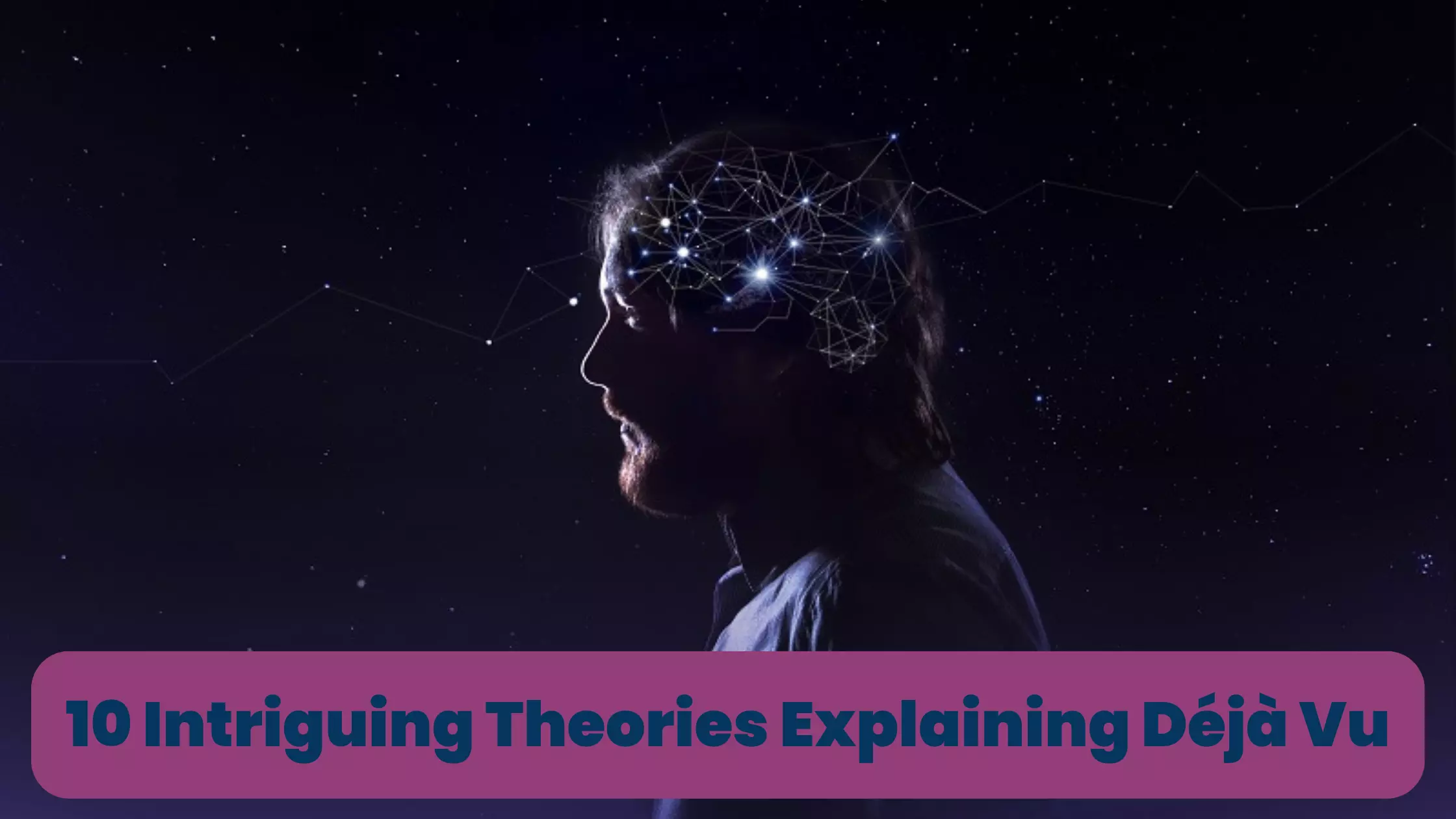People have been fascinated by the interesting phenomena of déjà vu for generations. It describes the sensation of having gone through a certain situation before, even when it is happening for the first time. This enigmatic occurrence frequently comes with a sense of familiarity and the conviction that one can foretell what will happen next. Despite the fact that science has not yet identified the precise source of déjà vu, several theories have been proposed to explain the phenomenon. This article examines the 10 most intriguing and perplexing hypotheses regarding déjà vu.
Theory 1: Familiarity-Based Recognition
Our recognition memory, which has two forms: familiarity and remembrance, is what allows us to recognize environmental cues. When we recall seeing something we have already seen, we have a recollection memory. Conversely, familiarity-based recognition occurs when we believe something is familiar to us but are unable to immediately recollect the specific memory that goes along with it. According to this theory, déjà vu might occur when we have a vague recollection of a prior occurrence but are unable to actively recall it.
Theory 2: Senses and Memory Mix-Up
According to this idea, déjà vu is related to our sensory perceptions and the way our memories are influenced by their surroundings. According to research, the environment in which our memories are formed affects them. As a result, particular noises, scents, or images may cause our subconscious mind to remember an analogous earlier experience. These triggers may cause a déjà vu-like feeling if they coincide with a recent event.
Theory 3: Dual Processing
According to the dual processing theory, a timing issue or other problem with the way our brains encode memories causes déjà vu. This idea proposes that as we encounter something, our brain concurrently makes an effort to store it in long-term memory. This simultaneous processing gives us the impression that the incident has already happened to us, which is an illusion of familiarity. It’s possible that a little brain glitch, which happens frequently in people, is what causes the brief timing error during memory creation.
Theory 4: Parallel Universe
Interestingly, some theories contend that the presence of parallel universes is related to déjà vu. This hypothesis states that déjà vu happens when a person notices a moment that coincides with a comparable moment in a parallel reality. It implies that when you get déjà vu, a parallel version of you is also experiencing that moment in an other realm. This causes a brief alignment between the two universes.
Theory 5: The Hologram
According to the holographic theory, memories are composed of interconnected frames that resemble three-dimensional images. Our brain creates a connection to the memory and reconstructs it as a hologram whenever a stimulus in our surroundings prompts a memory connected to a previous experience. The illusion of revisiting the prior event is created by this reconstruction, giving us the feeling of déjà vu.
Theory 6: Precognitive Dreams
According to this idea, déjà vu occurs when we have previously dreamed about the current circumstance, which relates déjà vu to precognition. For instance, you might imagine riding your bike along a particular road and then find yourself actually doing so. Even if you are not consciously remembering the stimuli, you can experience the road as being familiar because of a precognitive memory.
Theory 7: Amygdala
This theory proposes the amygdala, a tiny area of our brain that controls our fear reaction, as an explanation for déjà vu. It implies that déjà vu might be caused by a transient brain malfunction. Our amygdala may set off a panic response, temporarily confusing us, when we meet a circumstance that is somewhat similar to one from the past but with slight differences. It’s possible to feel a sense of déjà vu during this brief period of bewilderment.
Theory 8: Divided Attention
In accordance with this hypothesis, déjà vu is caused by our subconscious mind recalling an object or stimulus while our conscious mind is oblivious to it. In other words, déjà vu may be the subconscious mind recognizing a message. This theory’s proponents contend that subliminal signals can be sent through a variety of media, including the Internet, television, and social media, creating a sense of familiarity without conscious memory.
Theory 9: Reincarnation
A fascinating explanation for déjà vu is the idea of reincarnation. This hypothesis suggests that déjà vu may be a sign or a sight from a past existence. It implies that specific environmental triggers can cause a shift in consciousness, allowing for a fleeting memory of previous lives. For instance, the feeling of déjà vu can occur when recognizing a specific stimulus triggers a recollection from a prior existence.
Theory 10: A Glitch In Reality
According to this hypothesis, déjà vu is a temporary disruption in how we view reality. It implies that time is not a linear construct created by humans to create order and structure. This idea holds that the past, present, and future are all happening at the same time. It is thought that when déjà vu strikes, we briefly access a higher plane of awareness, enabling us to experience several situations at once.
Conclusion
Déjà vu is still a fascinating and puzzling phenomenon that lacks a conclusive scientific explanation. The hypotheses addressed here offer fascinating perspectives on the potential origins of déjà vu, ranging from mechanisms involving memory to theories about alternate universes, precognition, and faults in reality. The nature of déjà vu is still subjective and complex, thus further study and exploration are necessary to understand its genuine meaning.







